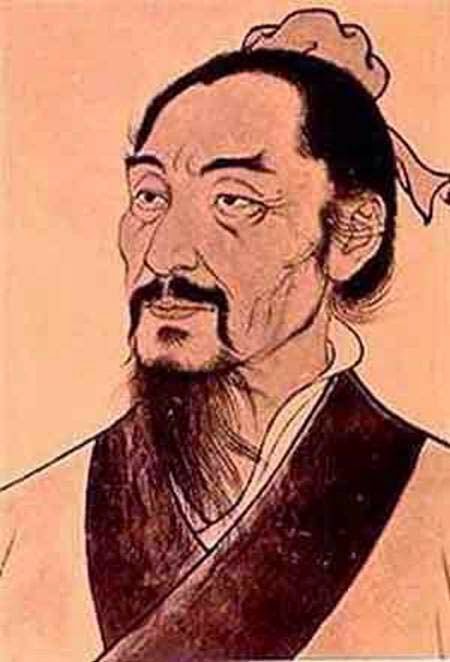In our class we
have exclusively focused on the work and thoughts of the western philosophy.
While I understand this decision when trying to cover all of philosophy in one
semester, this is still only a small part of humanities quest to find meaning
in our lives and the universe. To try and sum up the entirety of eastern
thought in these blog posts is a task I do not want to even ponder undertaking
so I shall instead limit myself to a philosophical overview of one of the
worlds longest lasting cultures and the one that it is probably most important
that we understand in this day and age; China.
Wherever there are
people there are thinkers and philosophers but just as western philosophy truly
formed in the schools of Athens Chinese philosophy truly began during the final
years of the Zhou dynasty and the warring states period. During this time of
bloody civil war several scholars and thinkers tried to derive meaning from the
chaos and deduce what had gone wrong with society and how it could be set right
again. This phenomenon was later dubbed chu-tzu pai-chia, or one hundred
schools of thought.
The two most
enduring of these thinkers were Confucius and Lao Tzu (who will each get there
own post later). However many of the other philosophies of the time made a
large impact on China and by extension the world.
The first of these is Mohism, which
was founded by the 5th century (B.C.) sage Mozi.
Mozi
Mozi was born around the year 470 B.C
his family were very poor and some speculate they have been slaves but Mozi
managed to work his way into a government position in the state of Song and
opened a school for others wishing to work their way into ministerial positions
in the warring states. A vehement pacifist, Mozi spent his later years traveling
to different warzones and attempting to end the fighting. Mozi was also
preoccupied with engineering and mathematics and combined this with his zeal
for peace to invent many devices designed to defend a city under siege. Perhaps
due to his back ground Mozi possessed a deep empathy for the poor and told his
students to practice equal kindness to all people without regard for ties of
state, class, or family. He called this “jian ai” or “impartial caring”. He
also strongly opposed over reliance on ritual and tradition to form ones
opinions and identity and told his students to learn about the world on their
own through trial and error.
Because of his
disregard for class Mozi’s ideas were not popular with the nobility, however
his followers remained relevant due ironically to their usefulness in attacking
and defending cities because they knew many of Mozi’s engineering secrets. His rejection
of tradition and ritual also earned him the ire of many Confucian scholars who
became the authorities on history and philosophy as the centuries wore on, and
though many in China today admire him as a modern thinker who was ahead of his
time after the warring states period he was largely forgotten until the 20th
century. Instead China took a much different path with the philosophy of
legalism.
Unlike the other
philosophies of the time legalism has no one founder nor was there ever even a
formal school of legalist teaching. Instead legalism is a name used by later
scholars to apply to the teachings of several warring states philosophers that
were eventually adopted by the Qin dynasty.
While other
schools said that the fractured conditions of the warring states came about
because former rulers disregarded the gods, the poor, or tradition legalists
saw the chaos as merely a result of the weakness of those in power. Just as the
English civil war inspired Hobbes idea of the ‘leviathan’ state the legalists
supported the idea of a centralized code of law and a powerful autocrat. Shang
Yang, an advisor to the kings of Qin, quite literally wrote the book on
legalism when he codified it for use by the Qin kings. He said if the laws were
clear and strong then even a weaker ruler could be affective. He also had
little use for morality or mercy seeing them as impediments to the rule of law.
Legalism did have its merits however. Under Qin legalism anyone could rise to a
high position through merit as exemplified by Lu Buwei a merchant who rose to
become the chancellor Qin. Also legalisms emphasis on standardization and
simplification led to the creation of a system of measurements still used today
and a large efficient bureaucracy, which would influence all later Chinese
governments. However the benefits of legalistic government could not out way
the growing tyranny and madness of the Qin emperor and shortly after his death
the dynasty was overthrown.
Emperor Qin Shi Huang, 1st
(and last) emperor of the Qin dynasty who instituted legalism throughout his united
China.
Legalism was
shunned by later dynasties for it association with the rule of Qin and it was
vilified by Confucian scholars who had face severe persecution under that
dynasty.



Thanks for helping rectify the omission of eastern philosophy here, Janie, not only by prompting me to include it explicitly on my syllabus next time but also with your posts. (In the future, when anyone searches "Chinese philosophy" on this site they'll find this!
ReplyDeleteBut wait... is this Janie's report, or Jeffrey's? I recall a brief conversation...
ReplyDeleteIf you guys post under someone else's authorship, be sure to sign YOUR name.